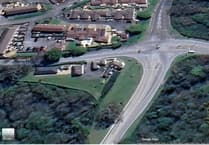Plans for a new carbon emission-reducing, energy efficient district-wide heating network have been unveiled.
The initiative is being backed by Teignbridge Council, Exeter City Council and Devon County Council with funding of up to £7.3m contribution to the £23m capital investment project.
And so confident are the councils in the future benefits of the scheme, that an advance payment of £50k will be made available for preliminary infrastructure works.
The new heat network will support the current Local Plan’s mixed-use development at South West Exeter, a new development on the edge of Exeter, spanning both Exeter and Teignbridge. Comprising Teignbridge Council and Exeter City Council’s planned housing developments, it will see up to 2,500 new homes in the area plus a new school campus, shops and community facilities.
Analysis has suggested that the new heat network will reduce carbon emissions from new homes planned by up to 70 per cent compared with natural gas-fired boiler alternatives, delivering carbon savings of at least 2,500 tonnes per annum via a long-term low-carbon heat supply.
Cllr Alan Connett, leader of Teignbridge Council, said: ‘This is an innovative way of helping future home owners with an effective energy solution for heating their homes whilst at the same time making a significant impact on our carbon savings plans.
‘It is an example of how we as a council can work with neighbouring authorities and developers to implement solutions which improve housing while tackling environmental concerns.
‘Until contracts are signed we can’t guarantee that the scheme will go ahead but everyone is committed to overcoming the outstanding issues and pushing forward with this innovative approach.’
Devon County Council leader Cllr John Hart said: ‘We’ve seen it successfully introduced at other developments in the area such as Cranbrook and Monkerton, and it would help our efforts to tackle the climate emergency.’
The network will be provided with heat from the nearby Viridor Exeter energy recovery facility (ERF) located in Marsh Barton.
The ERF puts waste which cannot be recycled to work to generate heat and power and the export of heat from the ERF is around five times more energy-efficient than the generation of electricity at the plant and it would mean that gas boilers would not be needed in homes within the South West Exeter development area.




